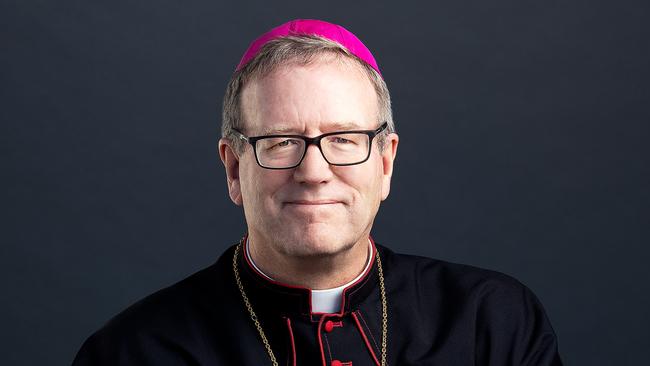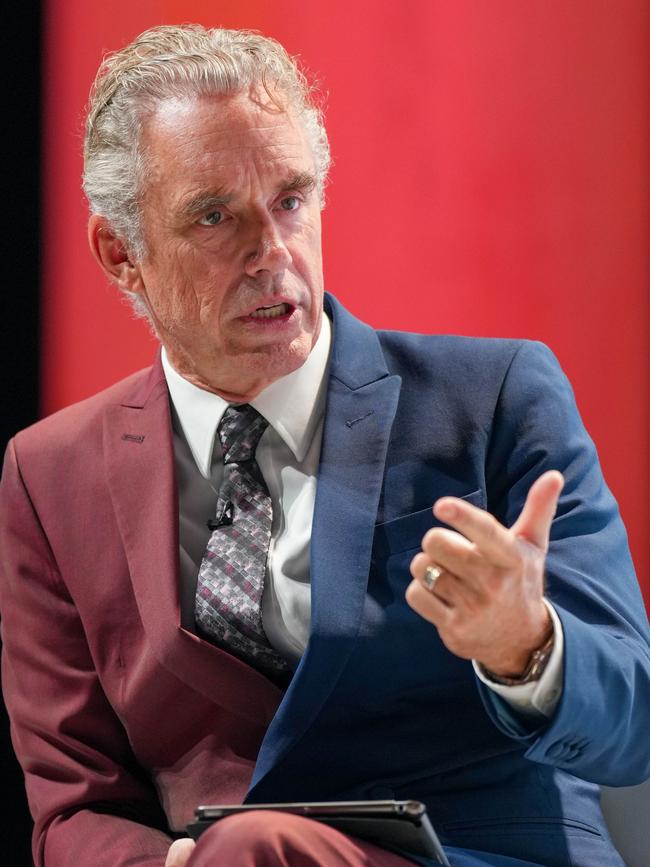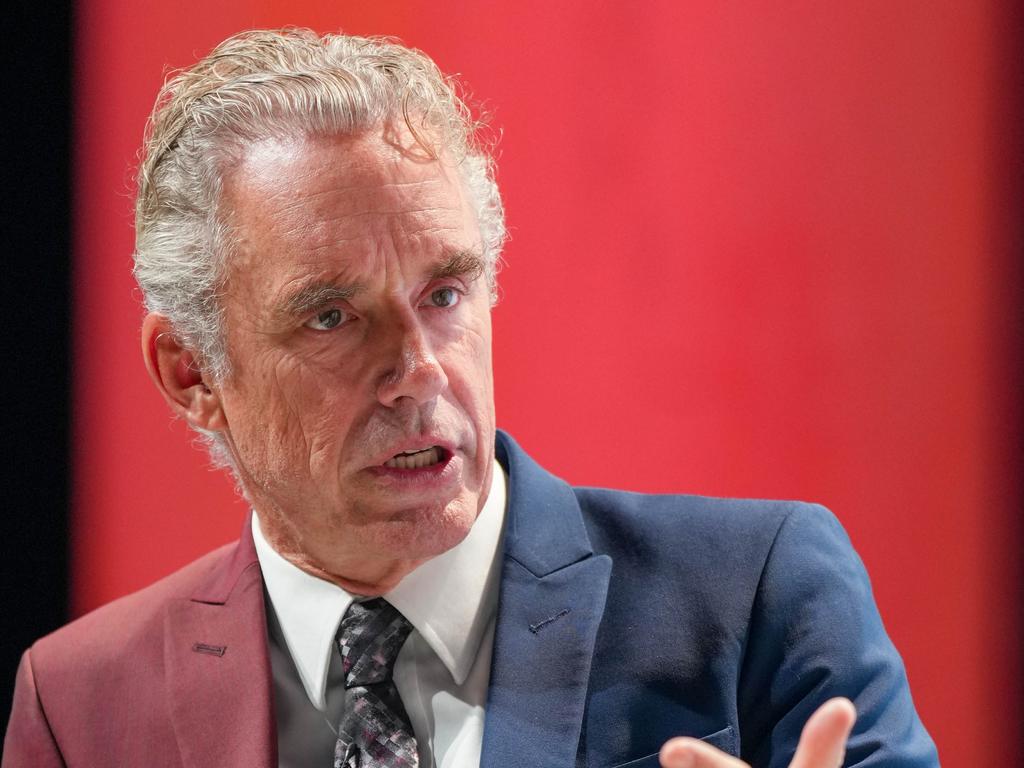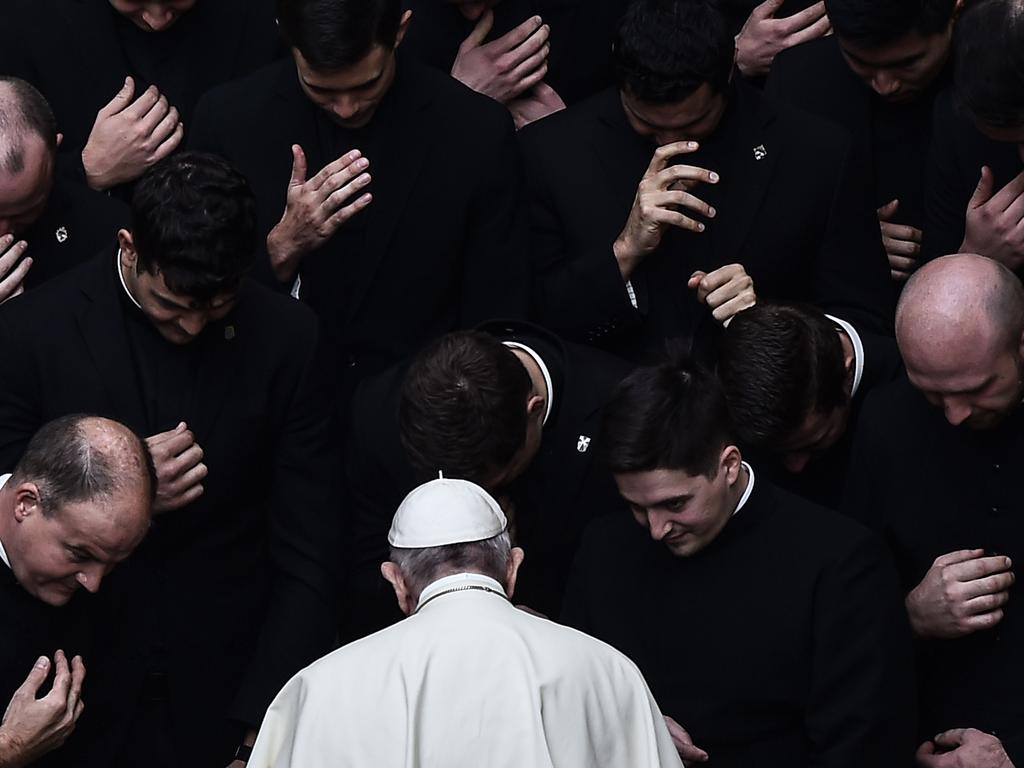God’s Barron sets digital world on fire for Christmas
Internet superstar Bishop Robert Barron would make an excellent cardinal and a scintillating pope.

Here’s one way of looking at Christmas. In order to get our attention, eternity, in the person of Jesus, pierced the veil of time. CS Lewis said that God entered the world so quietly, so secretly, because he was, in entering the Roman Empire, the empire of temporal power and earthly cruelty, infiltrating behind enemy lines.
Theologian Teilhard de Chardin had a different image, that God came into the world as an artist enters his studio. GK Chesterton imagined human life as a play that has gone wrong, so the playwright comes on stage to get it back on track.
I take the first two images from a sublimely handsome volume, the Word on Fire Bible, produced by US Catholic bishop Robert Barron.
It’s a truism that in the West, Christianity is in social and statistical decline. In most of the rest of the world, religion is on fire. But the West, mainly North America, Western Europe and Australia and New Zealand, have trapped themselves in a strange, dark little oubliette of paradoxical credulousness, in which they’ll believe anything at all except the religious realities almost all humanity hungers for all the time.
Feminist Louise Perry, author of The Case Against the Sexual Revolution, argues that Western society is repaganising. The folks who typically do worst in pagan societies are the least powerful, the poor, the dispossessed, the weak, childless widows and, compared with men, women and girls generally.
But this strange, atomised, denatured cultural moment in the West produces its own prodigies and wonders. Among these are the countless green shoots of new Christian life.
One such wonder is Bishop Barron and his Word on Fire mission. No one, really, could be designed worse for becoming a social media sensation reaching hundreds of millions of people than an orthodox Catholic bishop whose habitual attire is the black suit and Roman collar of Catholic clergy, and who is, by profession, an academic, specialising in the medieval theologian Thomas Aquinas, with a deep expertise in Augustine of Hippo, the fourth century North African bishop who wrote formative texts for Christianity. Though, to be honest, Barron is a pretty handy authority on Martin Luther King, Bob Dylan and Clint Eastwood too.
Remark these figures. Barron and his WOF mission have sold more than five million of their books, while they’ve had more than 150 million YouTube views, many more than 22 million WOF show video views. Barron has more than three million Facebook fans, 400,000 Instagram followers, nearly 700,000 YouTube subscribers, a quarter of a million X (Twitter) followers and more than half a million regular email recipients.
Those numbers don’t prove Barron’s message is true, or that he’s a super genius, or has stumbled on some secret formula. Lots of bad folks, spreading bad messages, have huge social media numbers. Nonetheless, Barron is the most successful and probably important Catholic communicator other than the Pope himself, and one of the half-dozen most influential Christian communicators of any kind.
The WOF media story started small, in 1999. It started with a complaint. Barron was grousing to a fellow priest that Catholics were rotten at media communication, the legendary Fulton Sheen, a bishop with a huge TV following in the 1950s and ’60s, was great but there hadn’t been much since then. The friend replied: so what are you going to do about it?
Barron was a seminary academic and working priest. He went to WGN radio station in Chicago and they told him for US $50,000 he could have a weekly sermon show of 15 minutes at 5.15am on Sundays. He raised the money to do it for three years.
It was an astonishing success. A colleague told him he should promote it through a website. Barron had no idea what a website was. Friends set one up for him and they agreed to call it Word on Fire. And it caught fire.
Barron still expected his life to be mainly that of an academic priest. Chicago’s Cardinal Francis George had different ideas and prevailed upon Barron to turn down prestigious academic posts at prestigious universities, to become instead head of his seminary and to keep on with Word on Fire.
I achieved an ambition of many years standing to meet and talk to Barron in London a few weeks ago. Barron was the surprise star at the Alliance for Responsible Citizenship conference, convened by Jordan Peterson and Australia’s John Anderson. Barron’s quite scintillating address argued that many contemporary social problems derive from old theological disputes.

The West, he argued, is obsessed with freedom but misunderstands its nature. Thomas Aquinas asked the question: if God is all powerful, can he sin? The answer is no because God’s will is perfectly attuned to his nature and his nature is goodness.
A later theologian, William of Ockham, stressed God’s unlimited power. He can do whatever he likes, even sin. Under Aquinas, freedom and goodness are united, under William, they’re divorced.
“Freedom,” Barron argued, “is about the discipline of desire to make the achievement of the good first possible, then effortless.”
He illustrates his point. If we speak English well we’re free to say anything we like. How did we get that freedom? Not by a lack of rules and purpose but by listening to good English spoken, reading good English well written, internalising its rules and rhythms. When we learn a language, at first we’re not free to say much at all because we haven’t learnt its inner rules. We don’t master them simply by being free of outside influence.
“Look at our culture today,” Barron told the conference.
“The default position is that I am the sovereign source of value, of meaning. Why are so many of our young people so lost, depressed and unhappy? It’s because freedom has become divorced from truth and from responsibility. If we’re the inventors of all value, we’ll live in an increasingly dull and dangerous world.”
These are deep intellectual waters but represent Barron’s characteristic style. He speaks clearly, in a conversational way, with great warmth and friendliness, but he doesn’t dumb things down, he gives you full value intellectually.
There are roughly 1.3 billion Catholics in the world. I thought the ARC conference was clever in picking the right one to address them. Barron is neither pompous nor unapproachable, or an egomaniac. But a lot of people want a bite of his time. He’s hard to get. He had just travelled to ARC from the Pope’s synod in Rome, which consisted mainly of selected bishops but with some lay people too.
I kidnapped him in the ARC green room and wickedly, ruthlessly, exploited his innate politeness and sense of compassion. Can we do the interview here, he suggested.
No, Bishop, we’ll be constantly interrupted. Let’s go across the road to a nearby hotel where we can talk better. I think there’s a lunch I’m supposed to attend, he offered plaintively to his aide. No, no, no, we can get some lunch at the hotel, I assured him.
Naturally, being London, and God always enjoying a mild joke, it poured with rain as we trudged across the open air to the nearest hotel. No good turn, as the bishop must surely know, goes entirely unpunished. He didn’t even get lunch, just coffee and a biscuit.
Barron is a normal sort of person. He’s learned, clever, very relaxed now in front of a camera, but he doesn’t come across as a force of nature hurled down from another planet. Many of the things he does could be emulated, in some manner, by other folks.
So here’s one question, among many, I’ve always wanted to ask him. What lessons does the astonishing success of his WOF mission offer for other Christians trying to win a hostile culture?
It’s a tribute to Barron that he doesn’t have a pat formula for that. Instead he thinks a bit, then offers this: “I’ve been talking and thinking about the rise of the ‘nones’ (those who express no religious belief). In the course of my lifetime (he’s 63) it’s gone from about 3 per cent of America to about 25 per cent claiming no religion.
“The (church) scandals of the last 25 years certainly haven’t helped. They’ve accelerated the institutional decline. And there’s a general decline of trust in institutions.
“But here’s where I find your question interesting. There are just so many people who do respond to something like the Word on Fire mission, to the work I’m doing. When you put religion out there in a fresh way, there’s still an audience. They might be sceptical, but yet they’re paying attention. There’s something so self-defeating about the self-invention culture, as I call it. There’s a responsive audience. People will return, they will come back, to these great values.
“Religion’s just got to be there, even though people are mocking us, and for ages they’ve been predicting our decline.”
Barron appears on all kinds of online forums. On Ask Me Anything he ended up No.2, oddly enough after Peterson: “They didn’t know me at all but I was a Catholic bishop willing to engage with nonbelievers. Jordan Peterson is an interesting example of a guy, who doesn’t come out of the institutional church, speaking of religious values. I think that’s a sign of hope.”
And, he points out, outside the West religious belief is booming: “We tend to look only at the West, we tend to squint at the West. I’ve just come from Rome where there were Catholics gathered from all over the world. The Philippines, much of Africa, much of Asia, most of the world is still vibrantly religious.
“People have been predicting the death of religion forever. Karl Marx, Friedrich Nietzsche, were confidently predicting that religion was just going to go away. It never does, of course. We’ve been through a lot worse (historically), including persecution to death. We’re still the most persecuted religion in the world today.
“The lesson is you declare Christ risen in season and out, when it’s popular and when it’s not. You declare Christ risen from the dead, some people will take it, some won’t. Some people will love you, some will throw stones at you. You look around for the seeds of the Word. That comes from Paul, and from the church fathers. There are signs of the gospel in every culture, even in secular cultures, even in pagan societies.
“Look at Paul (in the Acts of the Apostles) noticing the religiosity of Athenians. That’s a big part of my work. That’s a good instinct. Think of Paul preaching at the Areopagus (in Athens, by the Acropolis). They all left except for a tiny handful, but that was the beginning of European Christianity, which meant Christianity all over the world.”
Are there parallels in the wildly hostile pagan environment the first Christians faced and the neo-pagan environment in today’s West?
Barron says: “In the face of extraordinary hostility, they (early Christians) kept preaching the gospel. The MeToo movement five or six years ago became prominent. That’s classical Christianity. Women should not be treated as just sexual products for the amusement of powerful people. Good. Christianity’s been saying that forever.
“There’s the church’s attention to the poor. (Unwanted) newborn babies were abandoned on hillsides and Christians took them in. It was their ethical commitment to the poor that was evangelically efficacious. It still is.”
That “evangelically efficacious” is the only time I catch Barron using what you might regard as church jargon. Evangelically efficacious means it attracted a lot of interest and converts.
Barron is generally regarded as moderately conservative but doesn’t really participate in the conservative versus liberal battles within Catholicism. He quotes former Pope Benedict: “The church does three things. It worships God, it serves the poor, it evangelises (spreads its message).”
Naturally, Barron suggests, different Christians emphasise different things – serving the poor, practising worship, spreading the message of Christianity.
He accepts the vogue for listening, but Christianity can’t be just about listening, he says. It has a gospel to teach.
In his writing, Barron often stresses Christianity’s beauty. People are attracted to the moral beauty of Christianity. Beauty is a path to truth. Similarly, aesthetic beauty, the beauty of worship, of sacred music, of churches, of the rich intellectual and spiritual tradition, these qualities can lead people to faith.
Barron greatly admires the early church, and especially the church fathers, Irenaeus, Ignatius of Antioch, Origen. The early church is wrongly thought to be anti-intellectual, or at least non-intellectual. Instead, from earliest times, as these writers attest, they explored the depth of Christian truth in its majesty and richness.
“My generation got a very dumbed-down Catholicism,” Barron says.
“The assumption was always, no, they can’t handle any serious reflection, they can’t handle theology, so make it simple, simple, simple, as experiential as you possibly can. I was against this from the beginning. So I tried to present the truth in a smart way, not fully academic, but I wanted the YouTube videos to be substantive and rich and intellectually satisfying.”
Finally, I release Barron from our long tutorial. Four of us have had coffee and cookies but when I go to pay the hotel informs me that some passer-by has paid our bill already. That’s happened more than once when I’ve dined with bishops. The media mightn’t like them but lots of regular folks do.
Here’s a Christmas thought for the Supreme Pontiff. Pope Francis could do much worse than elevate Catholicism’s most effective communicator to the rank of cardinal. And the next conclave of cardinals, whenever that should be, in electing a new pope, could give some thought to who speaks most effectively today for eternal truths.




